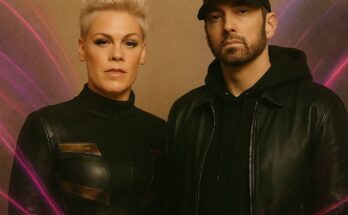Inside the Crease: Peter Aubry Reveals the Secrets, Pressure, and Vision Behind Edmonton’s Goaltending Future
When Peter Aubry walked into Rogers Place for his first official day as the Edmonton Oilers’ new goalie coach, the air felt heavy—not with ceremony, but with expectation. In a city that has tasted hockey immortality yet chokes on the memory of recent heartbreaks, the crease has always carried the weight of a thousand narratives. For years, conversations about Edmonton’s fate have ricocheted between offensive brilliance and defensive lapses, but beneath all the chatter, one truth pulses louder than the roar of the Oilers’ power play: this team will go only as far as its goaltending takes it. And now, that truth belongs to Aubry.
To understand Aubry’s arrival is to understand the paradox he inherits. Edmonton boasts two of the most dynamic offensive engines in Connor McDavid and Leon Draisaitl—generational talents who bend time and space with the puck. Yet, in postseason after postseason, those feats have been muted by fragile leads, leaky rebounds, and the cruel mathematics of high-danger chances gone unhandled. Goaltending here isn’t a supporting role; it’s a fortress wall, and when that wall cracks, the empire wobbles. Aubry knows this because he has spent a career studying the art of keeping walls upright under siege. His first words in our one-on-one weren’t about technique or systems. They were about mindset. “You can’t just teach a save selection,” he said with the quiet certainty of a man who has built goalies from the inside out. “You have to teach them how to live in chaos without becoming it. That’s Edmonton hockey—chaotic, electric, punishing. Your goalie has to breathe through that storm.”
Aubry’s resume hums with credibility. Years as a developmental architect, most recently in Chicago’s system, forged his reputation as a technician with a psychologist’s ear. He has worked with netminders clawing for relevance and those carrying entire franchises on their backs. Each stop hardened his conviction that modern goaltending is less about the first save and more about the third—control the sequence, not just the snapshot. When I asked what drew him north, he didn’t hesitate. “Opportunity,” he said. “Not for me, for this team. There’s a window here, and everyone knows it. The question is whether we can build the confidence to let skill breathe. That starts in the crease.”
Confidence. It’s a word that sneaks into every Oilers conversation like a shadow. Ask around the league, and you’ll hear the refrain: When Edmonton trusts its goaltending, it becomes ungovernable. McDavid takes an extra stride into the slot, Draisaitl feathers a pass no one else would dare, defensemen pinch like gamblers on a heater. When trust erodes, hesitation creeps in, systems wobble, and risk tolerance shrivels. Aubry’s challenge isn’t just mechanical—it’s alchemical, turning doubt into steel. How? “Reps, honesty, and predictability,” he said. “You give a goalie a map. Where do you want your eyes when the puck moves east-west? What’s your depth on controlled entries? Then you drill it until their body answers before their brain does. Pressure scrambles thought. Muscle memory saves careers.”
But Edmonton isn’t a lab; it’s a circus of speed. Few teams generate the rush chaos the Oilers endure nightly because few deploy the same high-octane attack. Does that change the coaching equation? Aubry smiled like a man who has already burned hours on the film. “You don’t fight chaos; you channel it. Our goalies will see backdoor seams because our forwards stretch the zone. That’s reality. So we train for lateral greed—pushing efficiently without panic. Post integration, reverse-VH discipline, tracking through traffic—none of that is optional here. It’s survival.”
Survival has defined recent Edmonton seasons when the conversation pivots to the blue paint. Fans can recite the heartbreaks: the soft goals at inopportune times, the series tilted by one flicked wrist shot, the sense that brilliance up front was forever bailing water behind. Aubry didn’t flinch when I raised it. “I watched the tape before I said yes,” he admitted. “You have to. And what I saw wasn’t a lack of talent. It was inconsistency—technical leaks under stress, recoveries that snowballed. Fixable things. That’s what excites me. If the problems were structural to the roster, you’d need trades. But these? These are habits. Habits can change.”
Changing habits in a market that dissects every goal against like a crime scene is its own stress test. Edmonton isn’t cruel, but it is relentless. One bad week and the crease becomes a fishbowl, headlines screaming, talk radio foaming. Does Aubry worry about the noise? “Noise doesn’t coach goalies,” he said, voice flat with conviction. “We’ll control what’s real—shot quality, save execution, recovery angles. Everything else is chatter. My job is to make sure chatter never becomes their inner voice.”
The inner voice theme lingered as we talked because modern goaltending lives at the intersection of biomechanics and mindfulness. Aubry leans into both. Visualization drills pepper his plans. Breath work threads through his pre-game routines. He calls it “building the bubble”—a mental dome where a goalie can skate in front of 18,000 souls, three TV cameras zooming on his sweat, and still feel like he’s alone in an empty rink. “If they can’t build that bubble,” he said, “the game builds it for them—and trust me, the game’s version is full of holes.”
Technique talk eventually seeped in because no goalie coach interview ends without it. Aubry waxed on the evolution of post play, on teaching goalies to marry old-school compete with modern economy of motion. “Sliding isn’t saving,” he quipped, describing drills that punish over-rotation. He wants Edmonton’s goalies calm on their edges, crisp on their seals, eyes snapping before pads commit. “The puck is faster than your legs,” he said, “but not faster than your read. Win the read, and the legs follow.”
As our hour wound down, I asked the question hovering over the whole conversation: Can Edmonton win a Cup with its current goaltending if Aubry’s plan sticks? For a beat, he said nothing, fingers drumming the table like a metronome. Then: “Yes. But not because of me—because of buy-in. You give me goalies who want to own their game, who see pressure as proof they matter, and we can write a story this city will never forget. That’s why I’m here. Not for tweaks. For a banner.”
A banner. In Edmonton, that word doesn’t float—it thunders. It calls back the ghosts of Messier, Gretzky, Fuhr, the five Cup parades that turned this city into hockey’s cathedral. Aubry isn’t naïve; he knows those ghosts hover like referees, silent but omnipresent. He also knows that in this era, the road to a banner runs through the most scrutinized 4-by-6 rectangle in sports. His fingerprints will be on every save, every overtime stretch, every whistle where a season dangles on the edge of a blade. The last thing he said before standing up wasn’t tactical or technical. It was human. “You can’t play this position scared,” he murmured, eyes narrowing as if seeing the future. “And neither can I.”
Walk out of that room and you understand why the Oilers hired him. They didn’t just hire a coach; they hired a thermostat. Someone to cool the panic, heat the urgency, and keep the temperature steady when Rogers Place feels like a furnace. Whether that’s enough to quiet decades of goaltending doubt is a question that will write itself in saves and screams and, maybe, champagne. But for now, one truth is certain: Edmonton has a new man in the crease—not stopping pucks, but shaping the souls who do.



